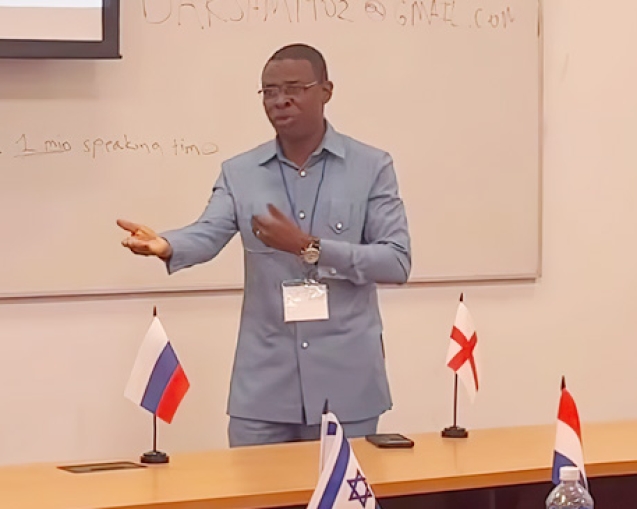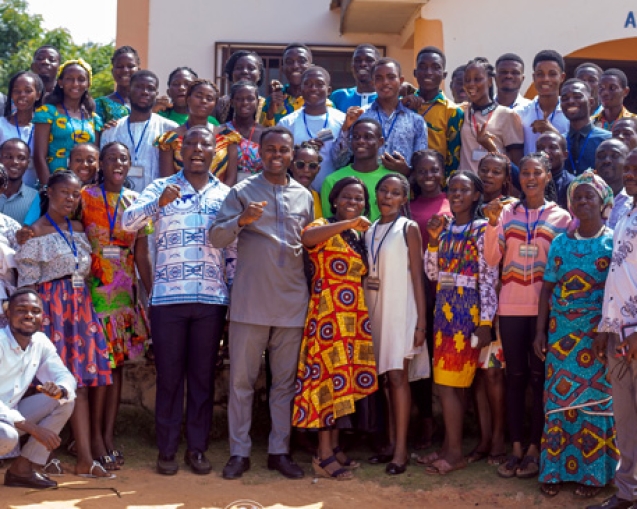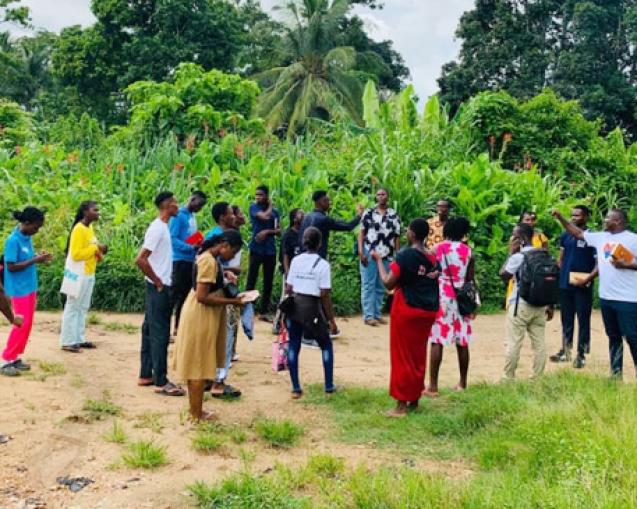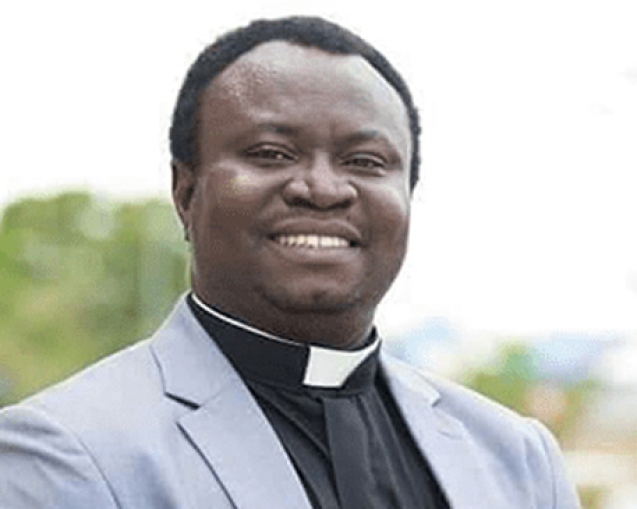The Cambridge dictionary defines a shortcut as a route more direct than the usual route or a quicker way of doing something. It is a faster or shorter way of getting to a place. Humans naturally lean towards shortcuts at the slightest opportunity, even with obvious risks and dangers. It is often argued why waste precious time and resources to achieve what can be achieved within the shortest possible time. Therefore, systems in both the service and manufacturing sectors are constantly exploring ways to shorten processes to achieve efficiency and maximize profitability. In like manner, God, the creator of the entire universe in record time, would be the first to opt for the best, effective, and efficient way of executing every aspect of His Kingdom business.
Unfortunately, there seems to be a popular assertion that God is not too interested in shortcuts, even if they appear to be risk-free and the apparent way out of the affairs of His children. One scripture usually picked out of context to back that assertion can be found in Exodus 13:17. It reads, “When Pharaoh let the people go, God did not lead them on the road through the Philistine country, though that was shorter.” Although God is the most significant stakeholder of our walk with Him, believers more often than not behave and pretend as though they are more concerned about productivity in God’s vineyard business than He. God’s way may appear long and impossible, but it always turns out to be the shortest route toward set goals. Part six of this series will examine how a hopeless widow, Idol, and worshipper became the Great Grandmother of Christ. Lessons will also be gleaned regarding maintaining the needed composure when traversing the humanly “long” hauls when God leads.
Per the Messianic prophecy, Christ was supposed to come from the tribe of Judah and through the seed of Jesse. “A shoot will come up from the stump of Jesse; from his roots, a Branch will bear fruit.” (Isaiah 11:1). Naomi and her husband relocated to Moab during a famine in Bethlehem. Their two sons got married to Ruth and Orpah, who were natives of Moab. Unfortunately, Elimelek, Naomi’s husband and their two sons died in Moab. Meanwhile, for ten years after marriage, both ladies could not have children with the sons of Naomi. Naomi, therefore, decided to return to Bethlehem of Judah while encouraging her daughters-in-law to settle with the hope of a better life. She told them, “It is more bitter for me than for you because the Lord’s hand has turned against me!” (Ruth 1:13).
Ruth started life with a lot of hope and aspirations when she married Mahlon, the son of Naomi in Moab. They had no children for ten years, and death came and laid its icy hands on her husband, unfortunately. Every hope of ever living any meaningful life was dashed for Ruth. Naomi felt and appreciated the predicament and hopeless days ahead of Ruth, possibly more than Ruth herself. Naomi told them, “Even if I had a husband tonight and then gave birth to sons— would you wait until they grew up? Would you remain unmarried for them? No, my daughters.” (Ruth 1:13)
Unlike Orpah, Ruth insisted and was determined to follow her mother-in-law to Bethlehem and live with her until death probably separated them. Ruth said, “Where you go, I will go, and where you stay, I will stay. Your people will be my people, and your God my God. Where you die, I will die, and there I will be buried.” (Ruth 1:16-17). Indeed, both Ruth and Orpah originally worshipped the gods of Moab. So, when Orpah chose to return to Moab from following Naomi, the latter told Ruth, “Look, your sister-in-law is going back to her people and her gods. Go back with her.” (Ruth 1:15). However, the conviction and subsequent confession Ruth made even when Naomi presented the gloomy prospects of following her became the bedrock of her uplifting and glorious end by God. Ruth finally finds herself with Naomi in the promised Land and decides to put the pieces together.
Generally speaking, God’s “long” shortcut for sinful humankind to reconnect to the road that leads to eternal life was His provision of His only begotten son to all who believe in Him. Christ, therefore, serves as the access bridge between the two parallel lanes that lead to eternal life and condemnation, respectively. Faith in Christ Jesus enables one to use the shortcut bridge from the lane of eternal damnation to everlasting life. (John 3:16).
Ruth counted the cost of following Naomi’s God with all possible outcomes and earthly losses. Yet she still counted it all joy for sticking to the God of Israel. Orpah, her sister-in-law, returned after she was taken through the cost-benefit analysis of following Naomi to Bethlehem and serving her God. Orpah thought she would lose her life and sense of dignity as a woman. Ruth, however, counted it all joy. Even her association with Naomi and her God would deny her a sense of dignity and livelihood. Immediately, they got to Bethlehem, the promised Land; Ruth decided to go out and work with her hands and not idle around soaked in self-pity. It was at the time of barely harvest, so she seized the opportunity to make earns meet for herself and her mother-in-law, who was quite old then. At the workplace, Ruth exhibited honesty, sincerity, loyalty, and hard work to the admiration of all her supervisors. (Ruth 3:11). She listened and obeyed Naomi’s instructions and guidance and showed her great kindness and goodness. Indeed, Ruth loved Naomi, her mother-in-law.
The circumstances that led Naomi to lose Elimelek and both sons of hers within ten years were quite bizarre and difficult to comprehend. Many who go through such deals become vulnerable and veer into blame games and superstitious beliefs. In some jurisdictions and communities, Naomi would have passed with a grade (A) in witchcraft. So, for Ruth to follow her widow mother-in-law and obey her without any superstition was remarkable. (Ruth 2:18-19, 23; 4:15). In the end, Ruth married Boaz, and their marriage was blessed with a first child named Obed. “Then Naomi took the child in her arms and cared for him. The women living there said, “Naomi has a son!” And they named him Obed. He was the father of Jesse, the father of David.” (Ruth 4:16). It was from this genealogy that our Lord Jesus Christ descended from. Ruth is, therefore, the great-grandmother of Jesus Christ. Wow! What a shortcut from the Valley of the Shadow of Death to Mount Zion! God’s “long” shortcut for Ruth, the idol worshipper, to be registered in the genealogy of Christ began with the painful and unexpected loss of her husband at a young age. Before this time, she also endured the stigmatization of childlessness after ten years of marriage while still maintaining her relationship with Naomi’s household.
The fruits of the Spirit Ruth exhibited, which propelled her to gain full access to what God had planned for her, were Forbearance, Goodness, Kindness, Humility, and Love. Ruth would have been the last person if it were a matter of knowing and connecting with influential people in Bethlehem for her to find a suitable life. Indeed, being a Moabitess, she appeared to have even discarded every hope of ever meeting a man who would express interest in marrying her in Bethlehem. Naomi, her mother-in-law, also returned home depressed and angry with everyone, including herself. When they called her Naomi, she replied, “Don’t call me Naomi,” she told them. “Call me Mara because the Almighty has made my life very bitter. I went away full, but the Lord has brought me back empty. Why call me Naomi? The Lord has afflicted me; the Almighty has brought misfortune upon me.” (Ruth 1:21-22). Ruth just decided to move out and find something to do with her hands, and the Lord connected her to Boaz, her husband. God always does the rest after we have given and done our best.
From the above illustration, we can firmly conclude that what humans call a long path toward success is God’s shortcut for His children. We have also realized that while many depend on their qualifications and hard work to occupy positions of trust, others see that as a rather long journey full of uncertainties. They thus resort to backbiting, lobbying, feminine power, and elimination of supposed competitors by rough tactics, which come with their inherent disappointments and miseries. God, however, knows the shortest but safest route to the assigned blessed destinations of all He calls His children. His route doesn’t take time; it saves it instead for all who put their trust in Him.
William L. Hogan once said, “God is under no obligation to explain or defend Himself to us. His ways are often perplexing and sometimes very painful, but be sure of this: God Himself has brought you to that difficult spot, and He makes no mistakes. We must rest assured that He knows what He is doing, even when we do not, and that He does everything well.” However, When God chose to use the Red Sea route for Israel instead of the shortcut, He explained His rationale to them. “For God said, “If they face war, they might change their minds and return to Egypt. So, God led the people around by the desert road toward the Red Sea. The Israelites went up out of Egypt ready for battle.” (Exodus 13:18).
Many believers, unfortunately, elongate God’s shortcut for them by the choices they made and by their lifestyles but turn around to make blasphemous comments about God and create disaffection for Him. Israel would not have spent 40 years in the wilderness for that journey to the promised Land. Those years could be best described as imprisonment or punishment and must not be added to the total mileage from Egypt to Cannan. God punished them to wander about until all over 20 years perished, except for Caleb and Joshua.
There can be no one who needs productivity in God’s vineyard than Himself. Therefore, there will always be good reasons, primarily out of the reach of human comprehension, why the apparent delays are loaded with intrigues anytime God is in charge. He always proves Himself as the faithful one, with the end being extraordinarily glorious if only we are prepared to go the “long” hull with Him. Humankind’s way perceived as a shortcut is instead loaded with risk, uncertainties, and speculations founded on human wishes. The routes God uses are incomprehensible and inaccessible by humankind’s efforts. It is always viewed as long, although it is always the shortest and safest way to reach our destinations. His Grace and help are where He leads.
Written by Apostle James Orhin Agyin


















